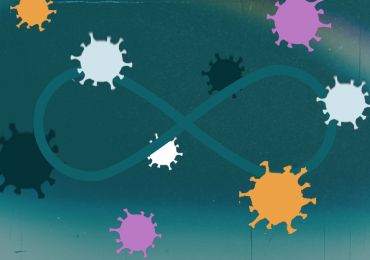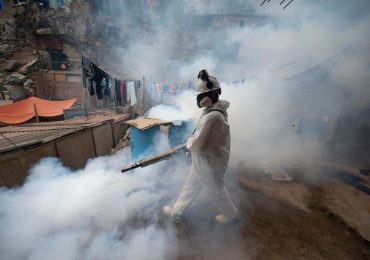BY MIKE MAGEE
As Thanksgiving Day approaches, let’s give thanks for the study of history, in part because it reminds us that Trumpian words like “vermin” have been used before and serve to alert the human race that we have entered danger zone
One President who understood the power of words more than many others was FDR. When he structured up “a series of programs, public work projects, financial reforms and regulations…to provide support for farmers, the unemployed, youth and the elderly”, he memorably packaged the plan under the label, “The New Deal.”
Seizing alliteration in 1933, he further defined his new policies as the “3 R’s – Relief, Recovery, Reform”, promising “…action, and action now.”
When his enemies began to coalesce against him in 1936, he chose his words carefully in the public defense. Seizing the largest venue he could find at the time –Madison Square Garden – he stood tall and erect, supported by heavy leg braces, and declared defiantly, “They are unanimous in their hate for me – and I welcome their hatred.”
With a heavy dose of humility and learned wisdom, he rose again eight years later, on January 11, 1944, fifteen months before his death, and delivered the State of the Union Address as a Fireside Chat from the Oval Office in the White House.
His words once again were clear and ever lasting. He stated that the original Bill of Rights was “inadequate to assure us equality in the pursuit of happiness.”
“Necessitous men are not free men. People who are hungry and out of a job are the stuff of which dictatorships are made,” he said, proposing“a second Bill of Rights under which a new basis of security and prosperity can be established for all—regardless of station, race, or creed.”
In proposing this radical cultural shift, he was forecasting the words of Harvard-trained philosopher Susan Neiman PhD in her recent book, “Left Is Not Woke” celebrating a democracy that valued “a commitment to universalism over tribalism, a firm distinction between justice and power, and a belief in the possibility of progress.” Adding, “All these ideas are connected.”
It is not surprising that Dr. Neiman highlights the work product of Eleanor Roosevelt who guided the creation of the UN’s “Universal Declaration of Human Rights” which she herself admits is to this day “a declaration that remains aspirational.” Signed by 150 nations, and the most translated document in the world, not a single country has created a society that assures all the rights enumerated.
This Thanksgiving Day, I will encourage my children, and grandchildren and guests to read aloud the 30 short Articles in the Declaration. Embedded in the declaration is a broad and inclusive definition of health. It reads “a state of complete physical, mental and social well-being and not merely the absence of disease or infirmity.”
I am motivated to take this action, not simple because the health of our democracy and others around the globe are under attack by Trump, and Putin, and their followers; nor only for the intentionally destructive behaviors of some of our elected officials; nor just as a reaction to the willingness of some leaders to undercut women’s autonomy and their rightful access to health professionals when medical danger is knocking at their doors.
Rather, I am driven to this action by last week’s March of Dimes report on maternal fetal health in America, and its incongruity with the second paragraph of Article 25 in the Declaration which reads:
“Motherhood and childhood are entitled to special care and assistance. All children, whether born in or out of wedlock, shall enjoy the same social protection.”
As the March of Dimes reported, “the U.S. remains among the most dangerous developed nations for childbirth with early data from the CDC showing a 3% increase in infant mortality in 2022.” 10.4% of babies last year were born prematurely before 37 weeks gestation. Compare that with the U.K. (7.6%), Italy (6.8%), or Japan (5%). To make matters worse, U.S. numbers reveal remarkable racial disparity with 14.6% of Black babies born prematurely compared to 9.4% of White babies.
As for mothers heath in the post Dobbs era, the report states that “maternal deaths are on the rise, with the rate doubling between 2018 to 2021 from 17.4 to 32.9 deaths per 100,000 live births.”
Fintan O’Toole, the Leonard L. Milberg Professor of Irish Letters at Princeton, in a recent review of Susan Neiman’s book, suggested that results such as these are “rather intimate catastrophes” … and “the starkest manifestation of a tribalized society.”
Such societies, and by inference our own, go well beyond “political partisanship.” As O’Toole explains, “Tribalism spills beyond the strictly political arena into parallel assumptions about history, geography, economics, and, of course, religion… neither side in this (typically binary) contest truly accepts the legitimacy of an electoral defeat. Being outvoted is understood not as a disappointment but as an existential threat.”
O’Toole, as an expert on “The Troubles” in Northern Ireland, knows the landscape, and is raising alarms. “The throwback now feels like a foretelling,” he says. As he sees it, “the Troubles are now—and not in a good way—everybody’s trouble. There are, in the United States and Europe, powerful forms of mass political identity that do not ‘adequately manifest’ themselves in loyalty to the institutions, laws, and values that make a democratic state possible…. suffering deepens the sense of victimhood… Self-harm and self-pity form a feedback loop of endlessly renewable political energy. And this perpetual motion machine is also driven by revenge.”
“The true colors of a community’s life may be a dazzling mosaic, but tribalism makes them monochrome: an orange sash, a green flag, a red MAGA hat.”
As a moral philosopher, Susan Neiman clearly channels an earlier Eleanor Roosevelt when she highlights the abandonment of philosophical values including “a commitment to universalism over tribalism, a firm distinction between justice and power, and a belief in the possibility of progress.”
Of course, societal progress, as O’Toole points out, almost always involves real trauma and human suffering. But with tribalism it is also accompanied by heavy doses of self-victimization. Trump’s White Nationalist followers believe they are being “tyrannized by poor immigrants and nonwhite people demanding to be treated as equals.” But as O’Toole points out, “The power of self-pity is that it does not require actual oppression—if you always travel first-class, being stuck in economy will make you feel very sorry for yourself.”
Neiman’s major point is that the vacuum left by an erosion of justice is always filled with power – and specifically, power over someone. As the March of Dimes report so well illustrates, that “someone” for Trump and followers, for whom (as O’Toole suggests) “the only truth is the eternal binary of friend and enemy,” and “politics, like war is a matter of the most extreme and intense antagonisms,” the enemies are clear. They are women and people of color in America.
Mike Magee MD is a Medical Historian and regular contributor to THCB. He is the author of CODE BLUE: Inside America’s Medical-Industrial Complex.
Leave a comment









